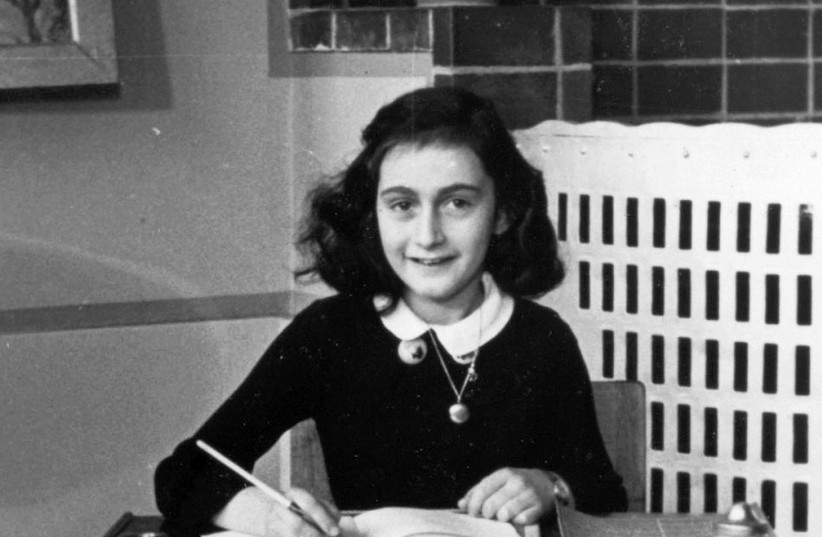Reincarnation is the belief that life begins once again after death, albeit in a new body of sorts.
It is a belief that is found in different religions and philosophical traditions around the world and goes back to ancient times. Today, it is most commonly associated with religions that originated on the Indian subcontinent, specifically Hinduism and Buddhism.
Officially, however, many mainstream religions, particularly the Abrahamic faiths like Christianity, Islam and Judaism, do not believe in reincarnation, though many sects and esoteric traditions within them do. Some people are even thought to have been reincarnated, including claims about Anne Frank.
Reincarnation should not be confused with resurrection, as while reincarnation means that one's soul comes back to life in a new body and identity, resurrection is when the soul and body comes back to life after death.
So what exactly is reincarnation and what do different religions think about it? What determines a person's reincarnation? And why does someone think Anne Frank has been reincarnated?

Here is everything you need to know.
Is reincarnation real? What religion believes in reincarnation?
Whether or not reincarnation is real is a matter of philosophical and existential debate, as is the case with most religious questions. Suffice to say, regardless of where one sides in this debate, there is no empirical scientific proof of reincarnation.
As for which religions, there are several. This makes sense, considering how far back the idea of reincarnation goes in human history.
For example, evidence of beliefs in reincarnation can be seen back in ancient Greece, where it was discussed by several leading thinkers such as Plato and Pythagoras. Here, some of it seems to be rooted in the Orphic mystery cult.
There are also some accounts that belief in reincarnation was held by the ancient Celts and Germanic peoples.
However, belief in reincarnation is most extensively documented in, and strongest in, the Indian subcontinent, specifically among the three religions of Hinduism, Buddhism and Jainism.
The three religions differ on some of the details, but all believe in a cyclic form of reincarnation, with the cycle often being referred to as the term "Samsara" or "Wheel of Samsara."
All three also believe that reincarnation isn't an endless cycle, however. The idea behind the cycle is that one will accumulate enough spiritual liberation and enlightenment to eventually be free of the cycle, which is the ultimate goal.
The terms used to describe this tend to differ. In Hinduism, the release from the cycle of reincarnation is known as moksha, whereas in Buddhism it's known as nirvana.
This cycle of reincarnation is also associated with another concept: Karma. While in the West, the word karma tends to just be associated with the idea of actions having consequences and "what goes around comes around," in the religions of the Indian subcontinent like Hinduism and Buddhism, karma is a very important religious principle and concept.
Essentially, good deeds and intentions in life result in good karma, which in turn will lead to a good reincarnation. By contrast, bad intentions and deeds bring bad karma and, in turn, bad reincarnations.
However, the topic is far more complex than it sounds. This is due to a number of reasons, such as whether it limits free will.
It is important to note that neither Hinduism, Buddhism or Jainism are monoliths, and different schools and traditions have very different opinions and views about all the many concepts found therein.
Interestingly, Judaism and Christianity both have similar, albeit much simpler, concepts like karma. In Judaism, it is known as mida k'neged mida, or "measure for measure," which implies that one's actions will result in appropriate and equal divine retribution. In Christianity, it relates to sin and a Last Judgement and is embodied by certain moral quotes from the New Testament of the Bible, such as "live by the sword, die by the sword" (Matthew 26:52) and "one reaps what one sows" (Galatians 6:7). However, how similar these are to karma is a matter of debate.

What do Judaism, Islam and Christianity think about reincarnation? Is reincarnation in the Bible?
Reincarnation is not explicitly mentioned anywhere in either the Torah, the Christian Bible or the Koran.
However, all three religions do place heavy emphasis on resurrections. In Judaism, this refers to t'hiat ha'meitim, the resurrection of the dead, described in numerous parts of both daily prayer services and the Torah, most famously in the Book of Ezekiel with the "dry bones" prophecy. In Christianity, resurrection is most famously attributed to Jesus Christ, who rose from the dead after he was killed. In Islam, resurrection is part of the prophecy for Judgement Day.
In other words, all mainstream Abrahamic religious faiths do not believe in reincarnation.
Having said that, there are two exceptions.
The Druze and reincarnation
The first exception is the Druze, an Arabic-speaking religious group found in the Middle East, specifically in Israel, Lebanon, Syria and Jordan, where they have played an important role for over a thousand years.
Having originally developed out of an Islamic sect, the Druze are still Abrahamic, but not Muslim. Unlike others, reincarnation is not only present in their religion, but an essential part of it.
The idea in Druze reincarnation belief is that it happens instantaneously upon death, with a Druze being reincarnated into the body of another Druze of the same gender.
Like in Hinduism and Buddhism, the idea behind reincarnation is that it isn't an endless cycle. Rather, it continues until one's soul escapes the cycle of rebirth and achieves unity with the Cosmic Mind.
The Alawites and reincarnation
The second Abrahamic group that believes in reincarnation are the Alawites. Like the Druze, this group also lives in the Middle East and originated from Islamic traditions. The Alawites number around 3-4 million worldwide, most of whom are in Syria. Whether they are considered an independent religion like the Druze or just a sect of Muslims is a matter of fierce historical debate and there has yet to be any true consensus on the subject.
Many consider the Alawite faith to be a mystery religion, and as such much of the details surrounding it are kept secret to all but a small group of Alawites. Indeed, what is known about them derives from publicly available materials, though their modern-day religious officials have never confirmed any of these assumptions.
But Alawites have some key differences from Islam; for instance, the ritual consecration and consumption of alcohol. But the most relevant for this article is reincarnation.
Again, much of the details surrounding this are unknown, but what is known is that the Alawites seem to believe that they were once celestial beings who were kicked out of heaven. The cycle of reincarnation is what they believe they must do before they can go back.
Reincarnation and Judaism?
While Judaism does not officially recognize reincarnation, there are some mystic and Kabbalistic traditions that do.
This relates to the Kabbalistic belief of gilgul, the migration of souls into new bodies after death.
Many rabbis throughout history have furiously rejected the idea of gilgul reincarnation, though others, especially in the Medieval era and onward, began to adopt it. In fact, it was likely one of the few things that the Vilna Gaon and the Baal Shem Tov agreed on.
Many beliefs about reincarnation gilgul in Jewish mysticism were compiled by Hayyim ben Joseph Vital in the text Shaar HaGilgulim.
Due to its role in Kabbalah, gilgul has become much more accepted among Hassidic Judaism, especially Ashkenazi Jews.
But Jewish reincarnation through gilgul is extremely different from what is seen in most other religions that believe in reincarnation. Gilgul reincarnation isn't automatic, nor is it either punishment or reward. Rather, the idea is that each reincarnation is done solely to make sure a Jewish soul lives enough to have fulfilled each of Judaism's 613 mitzvot.
This is a very oversimplified explanation, and to properly understand it would require an extremely detailed dive into the nature of Kabbalah, existence, creation, messianism and the human soul. But suffice to say, gilgul reincarnation is seen as compassion from God and not as any reward or punishment process.
But as part of the Jewish study on gilgul reincarnation, some rabbis have pointed to certain figures throughout Jewish history as the reincarnation of other figures.
For example, Chaim ibn Attar described Rabbi Akiva as the gilgul reincarnation of Cain and Moses as Abel.
For a more contemporary example, Israeli Chabad mysticism expert Rabbi Yitzchak Ginsburgh once claimed that the biblical Noah, of the famous flood story, was reincarnated as noted English scientist Sir Isaac Newton.

Is there a reincarnation of Anne Frank?
Currently, there is at least one person claiming to be the reincarnation of Holocaust victim Anne Frank: Swedish author Barbo Karlen.
Karlen, born less than 10 years after Anne Frank died in the Bergen-Belsen concentration camp, had made waves in earlier years as a child prodigy, having published her first book at the age of 12 which became a best-seller.
Supposedly, Karlen identified herself as "Anne Frank" to her parents when she was less than three years old. On a childhood trip to Amsterdam, she supposedly found the Frank house by herself and was able to notice things that had changed since the Franks lived there.
More interestingly, Karlen's status as Anne Frank's reincarnation was supposedly validated by Buddy Elias, Anne Frank's first cousin and last-living relative who was also president of the Anne Frank Foundation.
However, whether any of these claims are true is impossible to tell. For most of them, we only have Karlen's own words to go by, as well as records by the nonprofit Reincarnation Research. And since Elias died in 2015, it may be difficult to ascertain if they are legitimate.

But this isn't an isolated case. Author Sara Yocheved Rigler, who believes herself to be the reincarnation of a Holocaust victim, did research on what she calls “The Secret Society” – a group she estimates numbers hundreds of thousands of individuals who are alive today and are unrelated to Holocaust victims or survivors and were often completely unaware of the Holocaust as a historical event before they experienced Holocaust-related “dreams, flashbacks or phobias.”
This is all documented in her book, I’ve Been Here Before: When Souls of the Holocaust Return, but as with all reincarnation issues, the truth is impossible to determine.
Rivkah Lambert Adler contributed to this report.
